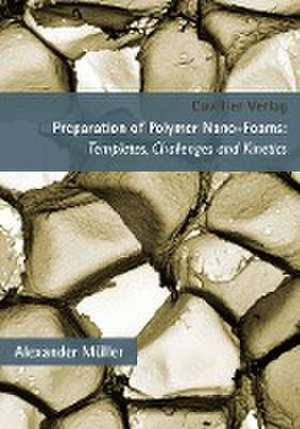Preparation of Polymer Nano-Foams. Templates, Challenges and Kinetics
Autor Alexander Mülleren Limba Engleză Paperback – 27 noi 2013
Preț: 391.00 lei
Preț vechi: 459.99 lei
-15% Nou
Puncte Express: 587
Preț estimativ în valută:
74.83€ • 77.83$ • 61.77£
74.83€ • 77.83$ • 61.77£
Carte tipărită la comandă
Livrare economică 10-16 aprilie
Preluare comenzi: 021 569.72.76
Specificații
ISBN-13: 9783954045662
ISBN-10: 3954045664
Pagini: 240
Dimensiuni: 170 x 240 x 13 mm
Greutate: 0.42 kg
Editura: Cuvillier
ISBN-10: 3954045664
Pagini: 240
Dimensiuni: 170 x 240 x 13 mm
Greutate: 0.42 kg
Editura: Cuvillier
Notă biografică
Alexander Müller, born 1986 in Cologne, studied chemistry at the University of Cologne. Diploma in chemistry in 2010. August 2010 to May 2013 Ph.D. thesis at the Institute of Physical Chemistry, University of Cologne. Scholarship of the 'Fonds der Chemischen Industrie' from November 2010 to Oktober 2012. Ph.D. in physical chemistry at the University of Cologne in June 2013.
